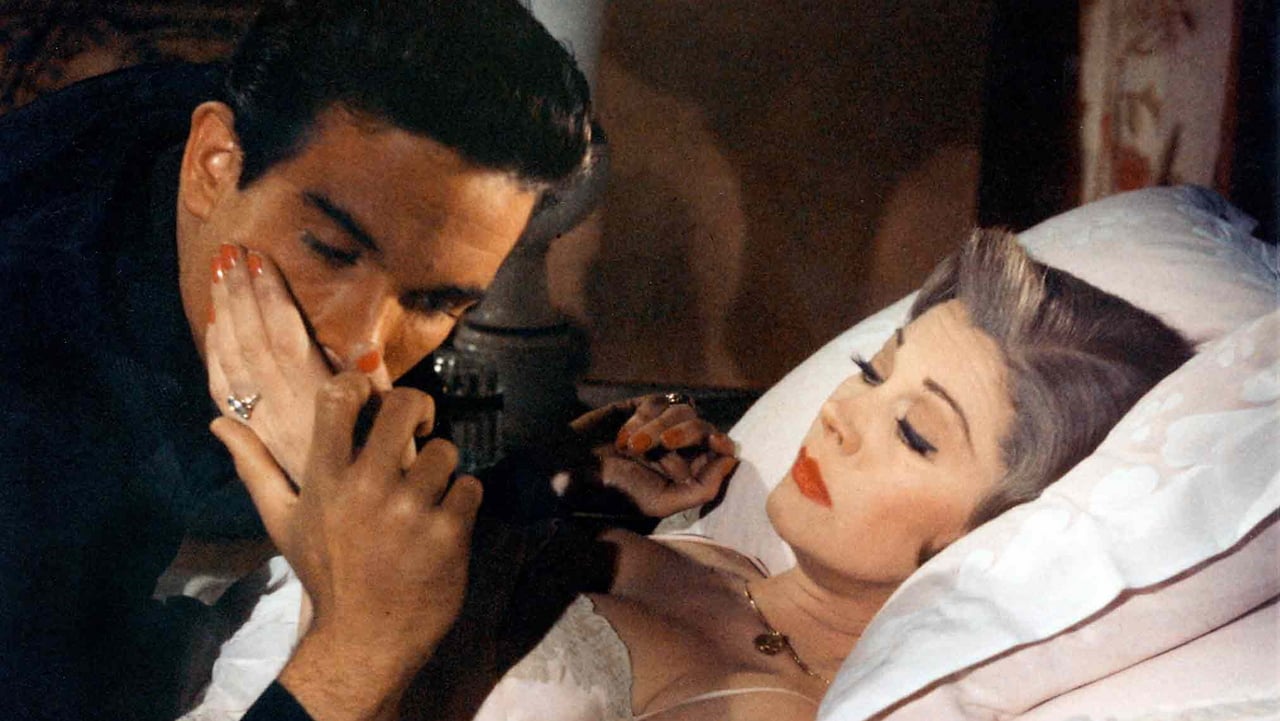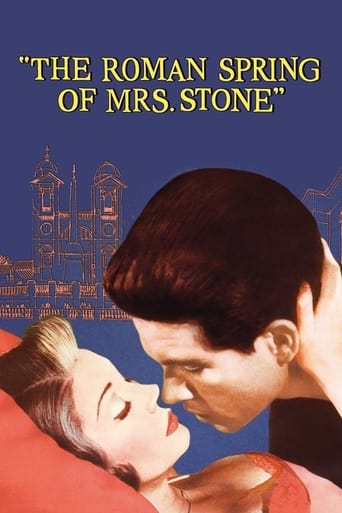

Yawn. Poorly Filmed Snooze Fest.
... View MoreRedundant and unnecessary.
... View MoreAm I Missing Something?
... View MoreThis is one of the best movies I’ve seen in a very long time. You have to go and see this on the big screen.
... View MoreThis is on my list of "watch whenever it's on," since it speaks to the temptation for women of degrading themselves rather than be alone. I must have seen it a dozen times, and the scenery is a great travelogue. Tennessee Williams can be very depressing, and this movie is no different, but it does have a decent message pertinent to older women especially. Vivian Leigh is very good, but Warren Beatty absolutely stinks in this. Two comments: 1. Without a doubt, Beatty's Italian accent is the WORST ever in any movie (worse than Brad Pitt's German one) 2. If that theme song sounds familiar, it's because it was stolen for the theme song of "Random Hearts," many years' later
... View MoreA film that beautifully captures the insecurity of aging in a world in which everyone has his price.Vivien Leigh is the glamorous actress who possesses money but little else as she watches her looks and job prospects fading. Against her better judgment, she allows herself to fall in love with Warren Beatty's Paolo. Every second spent with this seductive gigolo only postpones the anguish of the suicidally depressed diva.Running counterpoint to Mrs. Stone's painful "drift" is the derelict lying in wait at the base of her steps -- her own private carrion vulture.This movie ends on a pathetic and troubling note. While one feels for Mrs. Stone, one is also hugely relieved not to have to spend more time with the loathsome procuress played by Lotte Lenya.
... View MoreThere are three major problems here, and not just for millennial-era viewers: 1) Jose Quintero's emotionally numb direction, 2) Warren Beatty in a role he wasn't cut out for until ten years later, and 3) Tennessee Williams's severely dated high concept.Quintero's lack of experience in film is evident. He was a stage director, and it shows here. The lines are spoken for the words to be understood from a distance. Quintero seems to have little sense of using the faces of the actors to convey anything in the one- or two-shots... save for what the estimable Ms. Leigh manages on her own.Beatty's Paolo needed at least some of Richard Gere's Julian (in "American Gigolo") to make this fly, but either he had no sense of the character himself or Quintero got in his way.William's book is a reflection of Williams himself as the title character. "TRSOMS" is Williams trying to work through the fear of his own histrionic narcissism too many years in advance of what he pictured aging to be for a "queen" rather than what it really is. He was only 38 when he wrote the novella, after all. Leigh's character is him, but only insofar as he could project a future that he had merely envisioned rather than actually experienced.I've read plenty about Ms. Leigh's own struggles and supposed identification with her character. But if that is the case, I don't see much of it on screen, again, perhaps, owing to the wooden direction.Younger viewers will have to interpret this as a "period piece." 1950 and 1960 are to them what the Victorian Age was to us: Anachronistic. The conflicting values expressed by the characters do not make much sense to those raised on either Lady Gaga or "Cougartown." Today's 48-year-olds "go for it" on the basis of peer-approval, not despite it.
... View MoreMoravia's later novels, largely forgotten today, describe the world of Mrs. Stone. In them, wealthy people drift purposelessly, attended by lubricious procuresses offering compliant young persons to either sex of either leaning. Nobody ever manages to find an aim, let alone achieve anything. It is almost a mark of honour among Moravia's post-war Romans to have lost all conviction, and to pay to indulge idly in empty sexual encounters with equally aimless rent-boys and rent-girls. The Eternal City provides the beauteous and cynical backdrop.Obviously a homosexual in the strait-laced 1950s could not write frankly about his mid-life crisis and encounters with much younger rent-boys, so playwright Tennessee Williams was obliged to sublimate himself into the role of Mrs. Karen Stone, failing actress and inheritor of her husband's fortune. His choice of Rome was a perfect 'objective correlative' (T.S.Eliot) for his own predicament, permitting a frank treatment of mercenary poncing in the heterosexual context, of the kind pursued in the world of homosexuals.The result is a cloyingly sad story of drift and failure on the part of Mrs. Stone (Vivien Leigh), who manages to delude herself into believing that she loves her Italian gigolo (Warren Beatty), and, worse, that he loves her. There's a double irony in the fact that Leigh/Stone really is very desirable. Her face is divine, her breasts superb when she wears her nightgown, and her smooth upper back uniquely dimpled near the neck, echoing the dimples that doubtless lie below. She is, quite simply, delectable, and obviously hungry for sexual fulfilment.There's a delicious ambiguity in the last scene, when (as far as I am concerned), in her newly-aroused identity Mrs. Stone feels able to embark on pure lechery, through which she will doubtless triumph and even go back on to the stage. Others don't see it that way, but a lover of Moravia's tantalising fiction of boredom certainly would.
... View More